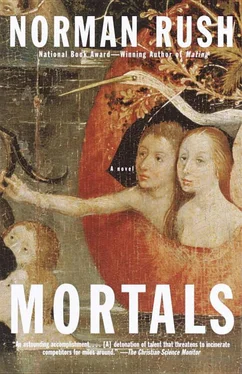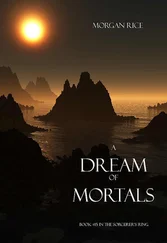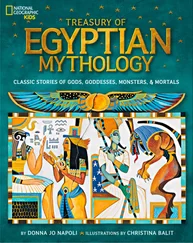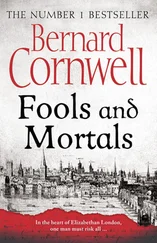“Who is he?” Iris whispered. “Do you know?”
“Not really,” he answered.
She wanted to know why the children’s heads were shaved.
“Lice,” he said. There were two girls in the group. They were wearing headscarves, but their heads, too, had been shaved. The children looked clean enough. And they were thin, but not emaciated, not the worst off. There was a feeding scheme for the gleaners that was doing something, at least.
Ray looked in Wemberg’s direction. Someone had put a chair under him and he appeared to be asleep. The embassy nurse was shielding him from the sun with a placemat.
Kerekang introduced himself and identified the children by name. In terms of type, where did Kerekang fall? Ray let himself free-associate about Kerekang. He could be the reliable uncle in a family, doing some sober job, the one to go to for school fees, emergencies, unmarried, too wounded in an affair of the heart to try again, someone like that, or he could be the one decent teacher in a boys’ school, unflamboyant, meek, a coward even, the one who turns heroic when the Germans occupy and the gym coach is revealed as a shit and a collaborator. What would we do without literature? Ray asked himself, feeling a little dumb.
Ray could see that Kerekang was unhappy with the microphone. He didn’t like being mediated by it, that was Ray’s guess. Certain men, or people, rather, had a sort of presence that made itself felt almost in a vibratory way. What Kerekang had, Ray had seen the counterfeit of a thousand times. People said that D. H. Lawrence had been that way. He was getting ahead of himself here, of course. He was trying to remember the description of Gandhi giving darshan , if that was the word, in something by Vincent Sheean that had made a gigantic impression on him when he was young and stupid. In the scene he remembered there had been a silent gathering and Gandhi had just been there, sitting or standing, raying out something that people felt in their bodies, their nervous systems, their fillings, maybe. Or it could be called glamour, not in the modern sense, but in the sense in which Malory used it. You’re still stupid, he thought.
Kerekang bent the microphone, on its stalk, away from him and out of play. His eyes were moist. In fact, as he began speaking, two tear tracks showed on his cheeks. But his voice, an enviable, strong, low baritone, was unaffected. Immediately Ray wondered if Kerekang had voice training in his past. It sounded like it, training either for singing or the stage. There was nothing in his dossier to suggest it. They were always arresting, small men with voices larger and richer than they were supposed to have. Not that Kerekang was small. For a Motswana, he was on the tall side. But he was shorter than Ray. A small man is any man smaller than you, Ray thought.
He looked at Iris. She was transfixed, he would say. She sought out Ray’s hand and squeezed it.
When Kerekang’s eulogy was over, Ray felt vindication. He had been right. It would be too strong to say he’d been rapt, but what he’d felt had been close to it. He could tell it had been the same with Iris.
“Amazing,” he said to her. She was still dabbing at her eyes with sodden wads of tissue.
It had been artful, and not only in transmitting feeling. Kerekang had also covered the waterfront in terms of essential information. Ray had learned certain things he hadn’t known. Apparently Alice Wemberg had worked faithfully on her own in a vegetable gardening project for the gleaners, the vegetable gardening project, rather. She had been a principal. This fountain brings up both bitter and sweet was from Jonson and could be about the West bringing wealth and poverty at the same time, wealth for the swift, and so on. And she had given significant time to this even up to, as he had put it, annoying her husband. Who was another very very good man. So he had learned today that Kerekang was also significantly connected to the gleaners, not just casually.
The assemblage as a whole had responded about as he had. Not that they had been able to get everything, for example, Kerekang’s bravery in bringing up Dwight’s rebellion within the Agency for International Development over the hybrid maize seeds the agency was pushing. He could imagine the AID people saying that this was not what they needed to have shoved down their throats at a memorial service. Dwight had changed his mind about the hybrid maize seed. The hybrid seeds had to be bought new each season and couldn’t be saved over. But some people, in desperation, following custom, had saved them and then done what they always had when they were desperate, eaten them instead of saving them, and then, because the hybrid seeds were treated with mercury, had died, poisoned. It still happened, in bad years. So when Dwight had understood this, he had turned against the hybrids, which was not what AID had sent him to Africa to do, which meant that AID had its own separate reasons for wanting to wave goodbye to him. Kerekang had praised Dwight and Alice equally, as examples of whites who had come to Africa to be of genuine assistance, in contradistinction to many other whites who came to Africa and, in the guise of helping, took more than they ever gave. They were not to be classified with the white ants. That had gotten Ray’s attention. The White Ants was a pamphlet in which the agency was interested, very. It was an inflammatory parable comparing whites in Africa to termites, but the truth was that literarily it had a certain grace and force, which was not an observation Ray could share with Boyle. The White Ants seemed to be everywhere.
And all this had been packed around a splendid thing, a virtuoso reading, not a reading, a rendition, because the performance had been from memory, of a poem by Tennyson, a fairly long one, “The Golden Year.” Tennyson was not a poet Ray considered interesting, but during the rendition he’d kept thinking Bravo . Somehow Kerekang had penetrated Tennyson and found something splendid there. And although the Tennyson had been just one ingredient in the eulogy, it had been the heart of it, for Ray. It was what had rapt him away. He was sorry to say that this didn’t happen to him much anymore. It could still happen with Milton, if he got rolling, reading late, alone, on an empty stomach, oddly enough. Or if he was tired. Then it could happen. It had happened the first time he’d touched Milton. It was the whole point of literature, or one of them, anyway. Absent awhile from my designs was a line from somewhere that described that feeling of being extricated from yourself in a flash, in a liquid way, without struggle. Movies lacked the power to do it for him, certainly never movies on tape. He felt in his breast pocket for a handkerchief and in the process switched off the microcassette recorder he carried there. Kerekang was on tape, if he wanted to hear this again. The quality would be poor, probably, due to distance, although this was a new machine and the damned things were getting more miraculous all the time. Gerard Manley Hopkins had been a revelation, a jolt, the first time through. But Hopkins was too rich, unlike Milton, who was just rich enough, just bejeweled enough. Knowing how to distribute his effects was a great secret Milton had, one of many.
“What was that thing he read?” Iris asked. Ray wanted to keep thinking about it, not talk about it.
“Tennyson,” he answered, “ ‘The Golden Year,’ ” letting her see that he didn’t want to talk.
She didn’t see it. “Get me some Tennyson, then. That was wonderful.”
“You won’t like it,” he said.
“Well, what if I do? I think I might.”
“I don’t think you will. What we just heard was exceptional because of the performance part of it.”
Читать дальше












